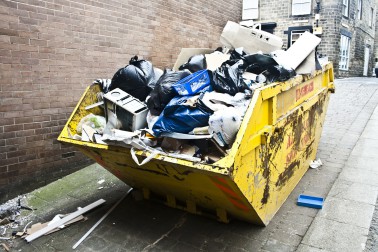If you produce waste, you’re legally responsible for disposing of it correctly.
Not many people are even aware of their legal obligations, let alone understand them.
As a household, any waste you put in bins your council provides is their responsibility, not yours. You don’t need to worry about this.
However, if you’re a company creating waste or if you’re a household doing renovations, gardening work, having a clear out, getting contractors in and you need to get rid of additional waste, then it’s down to you to ensure it’s disposed of correctly, as set out in the Duty of Care Code
If you produce waste, you’re legally responsible for disposing of it correctly.
Not many people are even aware of their legal obligations, let alone understand them.
As a household, any waste you put in bins your council provides is their responsibility, not yours. You don’t need to worry about this.
However, if you’re a company creating waste or if you’re a household doing renovations, gardening work, having a clear out, getting contractors in and you need to get rid of additional waste, then it’s down to you to ensure it’s disposed of correctly, as set out in the Duty of Care Code of Practice.
- The first thing to check is that whoever takes your waste away, needs to have a Waste Carrier Licence, issued by the Environment Agency. These are inexpensive and last three years. All traders should have one and should be able to give you a license number which you can check on the Environment Agency’s website.
- Secondly when your licensed waste carrier takes your waste away, you should be given a Waste Transfer Note (can also be called Waste Information) that tells you who’s taken it away, where the waste is going and a description of the waste being carried. This includes householders having work done. If there’s no Waste Transfer Note, then you waste is not legally being disposed of.
- As the waste producer, you need to be able to prove in a court that your waste was disposed of correctly. If your waste is disposed of incorrectly or dumped, it may be tracked back to you and you could be fined. If you regularly dispose of waste, it is best practice to track your waste every eight loads to ensure that your waste carrier is disposing of the waste as they have stated on the waste transfer not. There are companies that offer auditing services that can help with this.
Clearly for many small businesses this is not practical but by at least ensuring that you use reputable waste carriers and you keep the Waste Transfer Notes/Waste Information for 3 years, you will be doing the minimum required tracking should there ever be an issue.
Get a copy of the Duty of Care Code of Practice here:
www.gov.uk/government/publications/waste-duty-of-care-code-of-practice
For training on Duty of Care, whether it’s an introduction or in-depth knowledge, check out Skipcompare.com’s sister company Waste Plan Solutions here: www.wasteplansolutions.co.uk/service/training-consultancy


